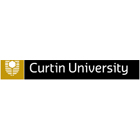Bachelor of Multidisciplinary Science
Bachelor of Multidisciplinary Science
The application of science to real-world problems continues to evolve and become increasingly complex and truly multidisciplinary in nature. Nowadays, in many areas of scientific endeavour, no one science discipline is sufficient to deliver advances and innovation. This is reflected in multidisciplinary fields such as astronomy, biochemistry, bioinformatics, environmental science,…
Categories
COURSE DESCRIPTION
The application of science to real-world problems continues to evolve and become increasingly complex and truly multidisciplinary in nature. Nowadays, in many areas of scientific endeavour, no one science discipline is sufficient to deliver advances and innovation. This is reflected in multidisciplinary fields such as astronomy, biochemistry, bioinformatics, environmental science, forensic science and nanotechnology.
In this course you will learn to apply scientific principles and concepts to real-world problems that are multidisciplinary in nature. You’ll also learn the communication, creative, entrepreneurial and cultural-awareness skills that are important in multidisciplinary, collaborative careers throughout government and industry.
You’ll have a choice of studying one of four majors: Computational Sciences, Earth and Environmental Sciences, Engineering Science or Physical Sciences.
Computational Sciences
In this major you will study various aspects of modern computing and gain the knowledge and practical skills that are sought by employers. The course covers fundamental programming and introduces C and Java as the tools for learning core concepts such as object orientation and algorithms. You’ll also learn Linux skills and study the fundamental aspects of artificial intelligence, computer science, and cybersecurity.
Earth and Environmental Sciences
In this major you will study Earth dynamics and its relationships with environmental science. Earth scientists are essential to resources and environmental industries and use sophisticated techniques for the analysis of earth and planetary materials. Environmental scientists apply their expertise in physical and biological sciences to generate innovative and sustainable solutions to environmental issues. Upon graduating, you’ll have the skillsets for careers involved in monitoring the impacts of industrial, urban, mining and agricultural development; measuring and analysing pollutants; and developing conservation and management plans.
Engineering Science
In this major you’ll gain the mathematical, practical and problem-solving skills to tackle various engineering challenges from a science perspective. This course has a cross-disciplinary focus so that you learn the fundamental principles of the various engineering fields, and also gain the theoretical grounding and practical knowledge to devise solutions to complex societal challenges. This major also provides a pathway to further discipline-specific engineering studies.
Physical Sciences
In this major you’ll study fundamental aspects of physics, astronomy, chemistry, mathematics and geology, and how these are drawn together to tackle emerging scientific challenges.
Multidisciplinary Science as a pathway
If you have not studied science previously or you don’t meet the prerequisites for our Bachelor of Science majors, this course offers a pathway for admission to our Bachelor of Science majors and STEM courses such as Computing, Engineering, Actuarial Science, Surveying, Medical Radiation Science and other health sciences courses.
After completing this course you may choose to continue on to complete a Bachelor of Science honours degree or a Master of Teaching, or explore other career opportunities.
What you’ll learn
Have demonstrated knowledge and understanding across more than one field of study that is typically at a level that, whilst supported by advanced textbooks, includes some aspects that will be informed by knowledge of the forefront of the fields of study.
Apply their knowledge and understanding in a manner that indicates a professional approach to their work or vocation, and have competencies typically demonstrated through devising and sustaining arguments (to both specialist and non-specialist audiences) and solving problems across their fields of study.
REQUIREMENTS
Students from different countries should have qualifications equivalent to Australian Year 12 and a scaled mark of at least 50 in English, Literature, or English as an Additional Language or Dialect.
IELTS (International English Language Testing System) – Listening, Reading, Writing, and Speaking – 6.0; Overall band score 6.0; TOEFL Score: 79 (overall); Reading 13; Listening 13; Speaking 18; Writing 21; Pearson Test of English – Listening, Reading, Writing, and Speaking – 50; Overall band score 58; TOEFL (Test of English as a Foreign Language) and PBT (Paper Based Test) – 570 and 4.5 in TWE; C1 Advanced Formerly known as Cambridge English: Advanced (CAE) 176 with 169 in Reading, Writing, Listening and Speaking. C2 Proficiency Formerly known as Cambridge English: Proficiency (CPE) 190 with 176 in Reading, Writing, Listening and Speaking.
EDUCATIONAL INSTITUTION
Curtin University is Western Australia’s largest and most culturally diverse university with Australia’s third largest international student population. Around 60,000 students from more than 130 countries study a Curtin degree, at locations including Perth, Margaret River, Kalgoorlie, Sydney, Malaysia and Singapore. Our cultural diversity adds a rich and valuable dimension to the campus atmosphere, preparing all graduates to live and work effectively in an increasingly global environment. We offer a range of industry-aligned undergraduate and postgraduate courses in business, humanities, health, engineering and related sciences. We also have a long-standing focus on Aboriginal and Torres Strait Islander education and culture, supported by our Centre for Aboriginal Studies.Curtin is widely recognised for its practical research that is focused on solving timely, real-world problems. In recent years our research activity has grown significantly, driving our rapid rise up the international university rankings.As a university that never settles, we will continue to develop existing partnerships and establish new ones in areas relevant to our research and teaching.




